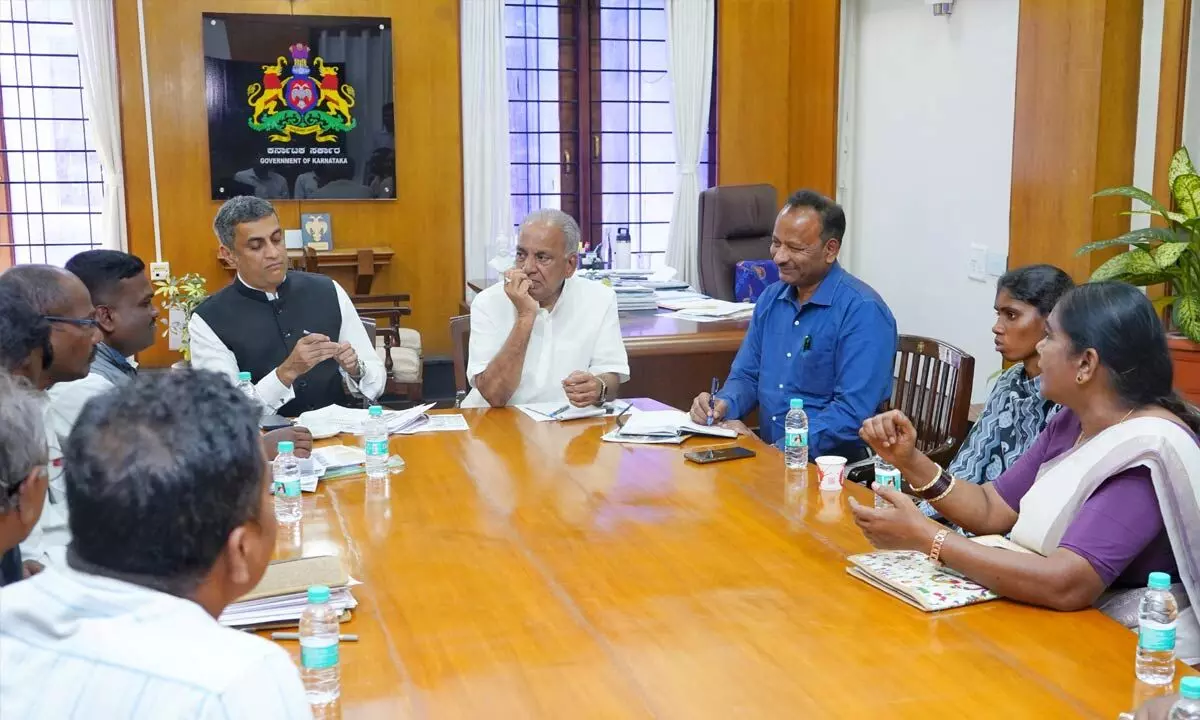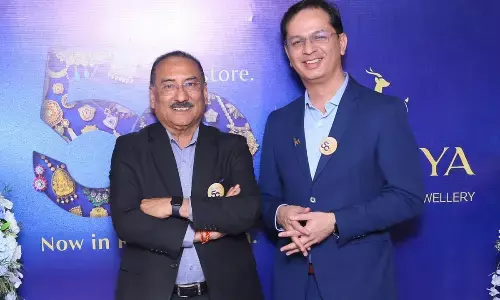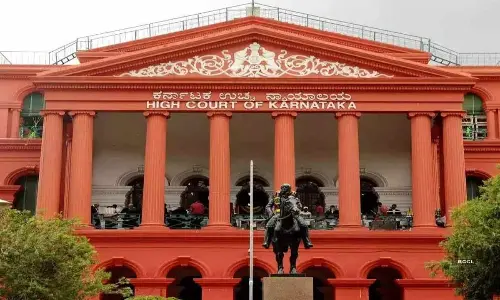Minister Boseraju Pledges Support for Forest-Fringe Tribal Communities

In a move to support tribal rights and welfare, Karnataka's Minister for Minor Irrigation, Science and Technology, and Kodagu District In-charge, N.S. Boseraju, has committed to advocating for forest-fringe tribal communities
Bengaluru: In a move to support tribal rights and welfare, Karnataka's Minister for Minor Irrigation, Science and Technology, and Kodagu District In-charge, N.S. Boseraju, has committed to advocating for forest-fringe tribal communities. The assurance came during a meeting at Vikas Soudha here on Thursday, where the minister engaged directly with tribal leaders from various parts of the state.
Accompanied by Chief Minister's Legal Advisor A.S. Ponnanna, Minister Boseraju listened to detailed accounts of the challenges faced by those living on the edges of Karnataka's forests. These include issues related to land rights, access to basic amenities, and protection from wildlife conflicts.
"After hearing the concerns of our tribal brothers and sisters, we are committed to bringing these matters to the attention of the Chief Minister and the Forest Minister," said Boseraju. "We will ensure that their voices are heard and their issues are addressed with the urgency they deserve."
The meeting was not just a platform for grievances but also showcased a collaborative spirit, with representatives from the Karnataka State Tribal Development Organization in attendance. Notable figures included Mr. Vitthal, President of the organization, Mrs. G.B. Bojjamma, Vice President of the Kodagu Division, and other key members like Mrs. Diddalli Muthamma, Mr. Girish B.C., Thennira Maina, and Dr. Nischal Dambekodi.
The discussions highlighted the need for a multi-faceted approach to tackle the problems at hand. Key points included:
Land Rights and Encroachment: Ensuring tribals have legal recognition over the lands they've traditionally used.
Infrastructure Development: Bringing electricity, water, and health services to remote forest areas.
Wildlife Conflict Mitigation: Strategies to reduce human-animal conflict, which has been a persistent issue for these communities.
A.S. Ponnanna emphasised the government's role in not just providing immediate solutions but also in ensuring long-term sustainability and development for these marginalised groups. "Our aim is to create a policy framework that supports the tribal way of life while integrating them into the broader developmental agenda of the state," he stated.
Speaking to Hans India Boseraju said this meeting marks a potential turning point for the forest-fringe tribal communities, with the government showing a clear intent to act. The next steps will involve the formulation of specific policy recommendations to be presented to the state's leadership, potentially leading to new legislation or amendments in existing laws to better cater to the needs of these communities.










